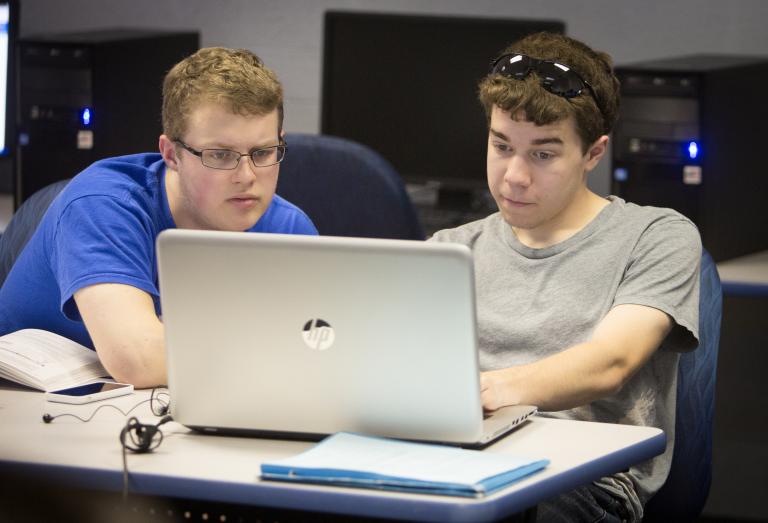
“The next big thing isn’t going to be a new device, but about cloud resources and how you utilize mobile devices to create high-value applications that exploit all the resources available in the cloud.”
Kettering University and the City of Flint are at the forefront of the next technological revolution in American cities through the national US Ignite initiative.
US Ignite is an independent, 501(c)(3) nonprofit, inspired by the White House Office of Science and Technology Policy and the National Science Foundation, and partners in industry, academia and government to identify and share best practices and resources for technological innovation in cities.
Kettering President Dr. Robert K. McMahan, in association with Flint Mayor Dayne Walling, is coordinating local initiatives to upgrade and expand high-speed networking capabilities in Flint which will in turn connect with other communities with similar infrastructure. Flint is one of 60 cities nationwide initially chosen to participate in US Ignite.
“People talk about what’s the next big thing?,” said Dr. John Geske, department head and professor of Computer Science at Kettering University. “The next big thing isn’t going to be a new device, but about cloud resources and how you utilize mobile devices to create high-value applications that exploit all the resources available in the cloud.”
The partnership to bring this technology to Flint also includes the Genesee Intermediate School District (GISD), Flint Chamber of Commerce, Genesys Hospital, the Flint Public Library, Flint Institute of Arts and the Mott Foundation.
“What they would like to be able to do is to roll out high speed networking capabilities in Flint. It’s this sort of thing that’s going to drive a lot of innovation in the next few years,” Geske said. “The next generation, programmable, high speed networking is the foundation that allows cloud computing to really take off.”
The installation of the technology will have a multitude of applications ranging from public safety to providing efficient health care consultation.
“It’s a daunting task but the rewards are pretty high because anybody can take high speed networking to Austin or Ann Arbor. They already have a lot of infrastructure there,” Geske said. “But to take a place like Flint or Detroit and show the benefits of high speed networking, now that’s really something. Flint would see advantages.”
With this emerging technology it is possible to create “smart neighborhoods” that can react to specific events, Geske added. For example, if there is a reported incident in a neighborhood, these new networks could be used to control the lights to instantly increase illumination of the neighborhood more than normal; emergency responders could be automatically alerted; neighborhood watch groups could be notified. Additionally, police patrol cars can be outfitted with high-definition cameras that provide surveillance of incidents in progress.
The first step for the project is to obtain funding to install the high-speed network capabilities at anchor institutions like Kettering, other college campuses, the Flint Institute of Arts, hospitals and local libraries. The GISD already has high-speed network capabilities that connect to schools in Flint and in Genesee County.
With this technology, Geske imagines a situation in the near future where you are at home and have a consultation with your primary care provider or a specialist and interact with them --through a secure, high-speed connection -- as if you are in the doctor’s office. Or, a surgical consultant from Cleveland Clinic is observing and guiding robotic surgery occurring in real-time at a local hospital.
Dartmouth, Rutgers, University of Wisconsin and the University of Utah have all expressed interest in collaborating for research and implementation of this technology in Flint. Beyond the preliminary partnerships and applications of the high-speed network, the potential for innovations is immense as other technologies and national partnerships are bound to emerge.
“Without Kettering here, this wouldn’t have happened,” Geske said. “This is Kettering University taking the lead to help economic development in Flint.”